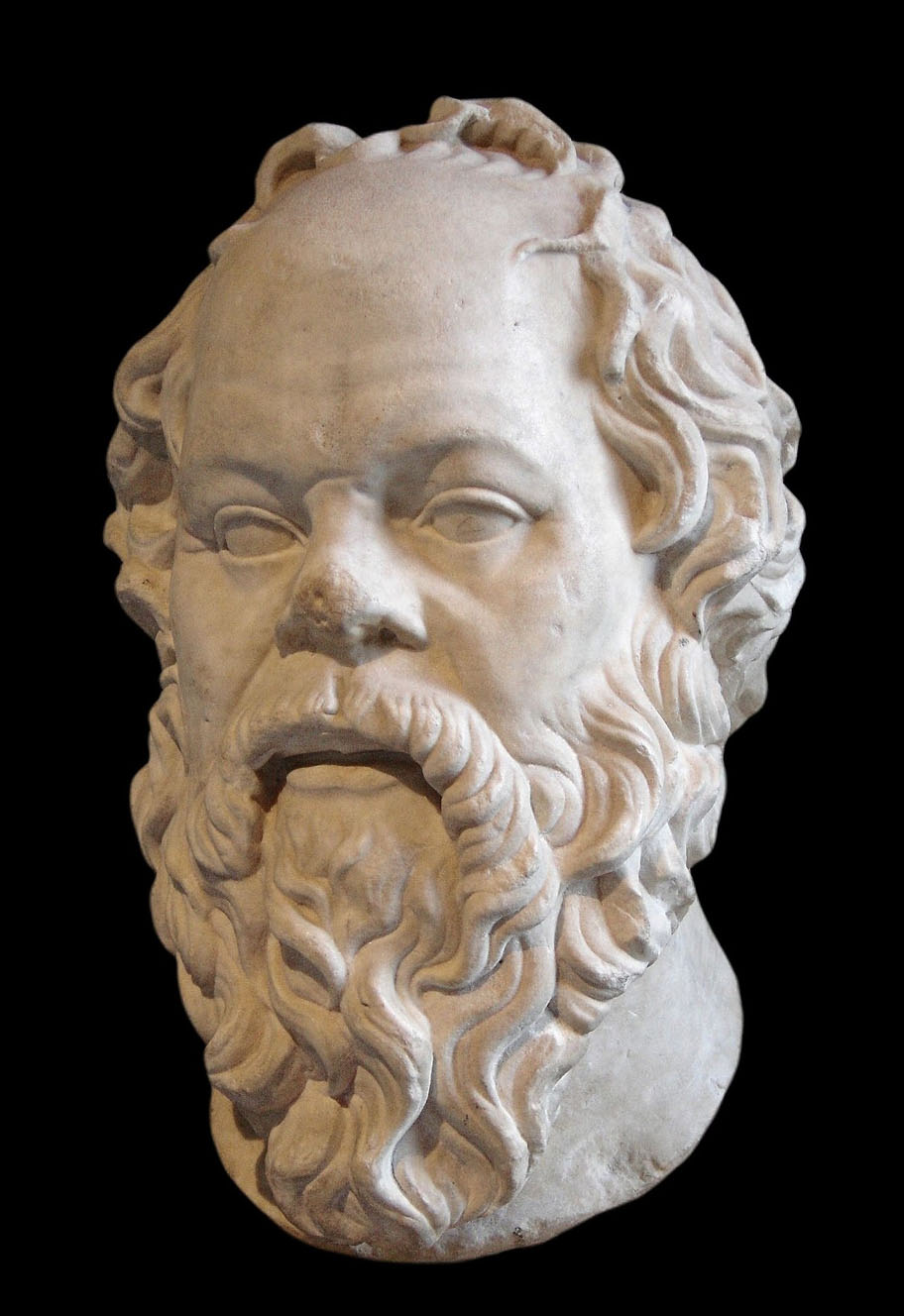Socrates
Born:
C. 469 BCE
Died:
399 BCE
Socrates was an ancient Greek philosopher and a key figure in the development of Western philosophy. He is best known for his contributions to the field of ethics and his distinctive method of teaching, known as the Socratic method or elenchus. Socrates left no written records of his own; therefore, much of what is known about him comes from the writings of his students, particularly Plato. Here are key aspects of Socrates's life and philosophical contributions:
Background and Early Life: Socrates was born in Athens, Greece, around 469 BCE, to the sculptor Sophroniscus and the midwife Phaenarete. Little is known about his early life and education, as he did not leave any written records.
Philosophical Method - Socratic Method: Socrates did not write down his philosophical ideas. Instead, he engaged in dialogues with his interlocutors to explore and illuminate ethical concepts. The Socratic method involves asking a series of probing questions to lead others to discover answers on their own, promoting critical thinking and self-examination.
Ignorance and Wisdom: Socrates famously claimed that he was wise only in that he knew he was ignorant. He believed that true wisdom lay in recognizing the limits of one's knowledge and constantly questioning assumptions.
Elenchus and Irony: Socrates often used the elenchus, a method of questioning and cross-examination, to expose contradictions in the beliefs of his interlocutors. This process sometimes led to a state of aporia, where individuals realized their lack of understanding. Socrates employed irony, pretending ignorance while guiding others toward self-discovery, challenging them to question and refine their beliefs.
Trial and Death: Socrates's philosophical activities and questioning of traditional beliefs led to tension in Athens. In 399 BCE, he was charged with impiety and corrupting the youth based on his perceived influence on figures like Alcibiades and Critias. Socrates was tried in a court of law, defended himself eloquently but was found guilty. He chose to drink a cup of hemlock, a poisonous substance, and died in prison. His death is depicted in Plato's dialogue "Phaedo."
Plato's Accounts: Plato, one of Socrates's most famous students, wrote several dialogues featuring Socrates as the main character and mouthpiece. These include "Apology," "Crito," and "Phaedo," where Socrates discusses his trial, imprisonment, and philosophical views. It is important to note that Plato's portrayal of Socrates may not always accurately represent the historical Socrates, as Plato used these dialogues to explore his own philosophical ideas.
Legacy: Socrates's legacy lies in his contribution to the foundations of Western philosophy. His emphasis on ethical self-examination, questioning assumptions, and the pursuit of wisdom has had a profound impact on subsequent philosophical thought. Socratic questioning and the elenchus remain influential in modern pedagogy, encouraging critical thinking and exploration of ideas.

Quick Facts
- Socrates did not leave behind written works; much of what is known comes from the writings of his students, particularly Plato.
- The Socratic method involves asking probing questions to lead others to discover answers on their own, promoting critical thinking.
- Socrates famously claimed to be wise only in recognizing his ignorance and believed in constantly questioning assumptions.
- Socrates's trial, defense, and death by hemlock are depicted in Plato's dialogue "Phaedo."
- Socratic questioning and the elenchus continue to shape philosophical discussions and educational practices today.
Further Reading
Art &
Architecture
Ancient Greek art and architecture, with its harmonious proportions and timeless elegance, continue to inspire awe and admiration millennia later.
Discover
Greek Mythology & Mythical Characters
Greek mythology, a rich tapestry of gods, heroes, and mythical creatures, captivates the imagination with its tales of love, betrayal, and epic adventures that delve into the depths of the human psyche.
Discover
Ancient Greek History
Ancient Greek history, marked by remarkable achievements in democracy, philosophy, and warfare, shaped the foundation of Western civilization, leaving an indelible legacy of innovation and cultural influence that continues to resonate to this day.
Discover
Ancient Greek Olympics
The ancient Greek Olympics, held in Olympia every four years, celebrated athleticism, unity, and cultural pride, serving as a testament to the enduring spirit of competition and excellence that transcends time and borders.
Discover
Ancient Greek Wars
Ancient Greek wars, such as the Persian Wars and the Peloponnesian War, were pivotal conflicts that shaped the course of history, highlighting the struggle for power, independence, and the clash of civilizations in the ancient Mediterranean world.
Discover
Ancient Greek Culture and Society
Ancient Greek culture and society, characterized by its emphasis on art, philosophy, and civic engagement, fostered a vibrant intellectual and social landscape where innovation flourished, democracy thrived, and the pursuit of knowledge and excellence was celebrated as fundamental values of civilized life.
Discover